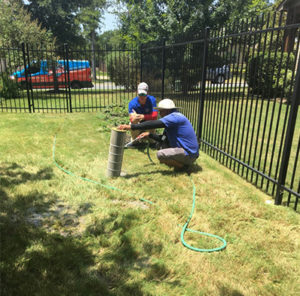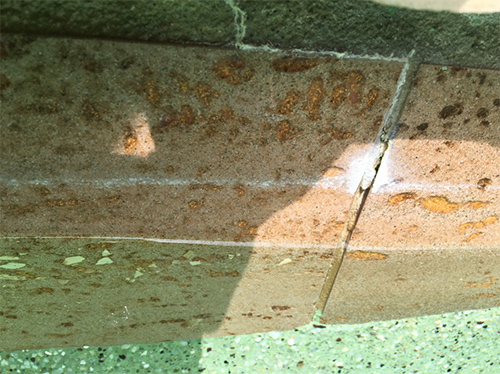While each pool is unique and requires certain maintenance to keep it clean and healthy, Texas pools are unique in some of the common issues that arise. Below are five situations that Texas pool owners frequently come across and should be prepared for at any time.

Almost every commercial aquatic facility has a sign “Shower before entering the water.” This is to help limit the amount of oil introduce to the swimming pool. Oil and water don’t mix. A solution to help in breaking down the oils in the pool is the regular use of Enzymes. This will help prolong the pool filter’s life.
Many swimming pools in Texas are equipped with either gas heaters or heat pumps for the cooler months. Either system needs to be protected from metal staining that can occur as water circulates through the internal heater components. A metal sequestrant can be used on a weekly basis to prevent metals from staining your pool surface.

Calcium hardness is a key measurable component in a well balanced pool. The performance of calcium can fluctuate greatly with warmer/cooler water swings and pH. Scaling can occur when calcium hardness is too high. This could result in cloudy water, rough surfaces and heater inefficiency. Corrosive water can occur when calcium hardness is too low. You may notice etching of plaster, grout dissolving or pitting of concrete surfaces.
With the high temperatures in Texas and sometimes cooler evenings, your pool water is more likely to evaporate at a fast rate. Be prepared to know the quality of the water that you refill the pool with. Knowing the new chemistry that you’re adding to the pool may save you time down the road on balancing chemicals. If adding water from the tap has a lower pH than the pool’s water, then you can reduce the amount of pH minus you would use to ensure a balanced pool.
 Towards the end of the year, it is important to maintain proper filtration time and chlorine levels. Most of the pools in Texas will stay warm enough to promote algae growth. If your pool has a chlorine feeder or salt system, chlorine is only produced when the pump is running. Be sure to adjust your time clocks and automation to the proper run time for sanitizing.
Towards the end of the year, it is important to maintain proper filtration time and chlorine levels. Most of the pools in Texas will stay warm enough to promote algae growth. If your pool has a chlorine feeder or salt system, chlorine is only produced when the pump is running. Be sure to adjust your time clocks and automation to the proper run time for sanitizing.
Still have questions about maintaining and caring for your Texas pool? Give Pool Scouts of North Fort Worth a call at 682-499-2400 and we can answer any of your questions. We look forward to hearing from you!